Why Some Video Game Villains Are More Lovable Than Heroes
10 March 2025
Let’s be real for a minute—sometimes, we can’t help but root for the bad guy. Video games have come a long way from simple "good versus evil" storylines. Nowadays, villains are stealing the spotlight, becoming breakout characters that leave even the heroes feeling like background noise. But why do we love them so much? What is it about these so-called "bad guys" that makes them more relatable, charming, or downright lovable than the heroes? Grab your controller, and let’s break it down.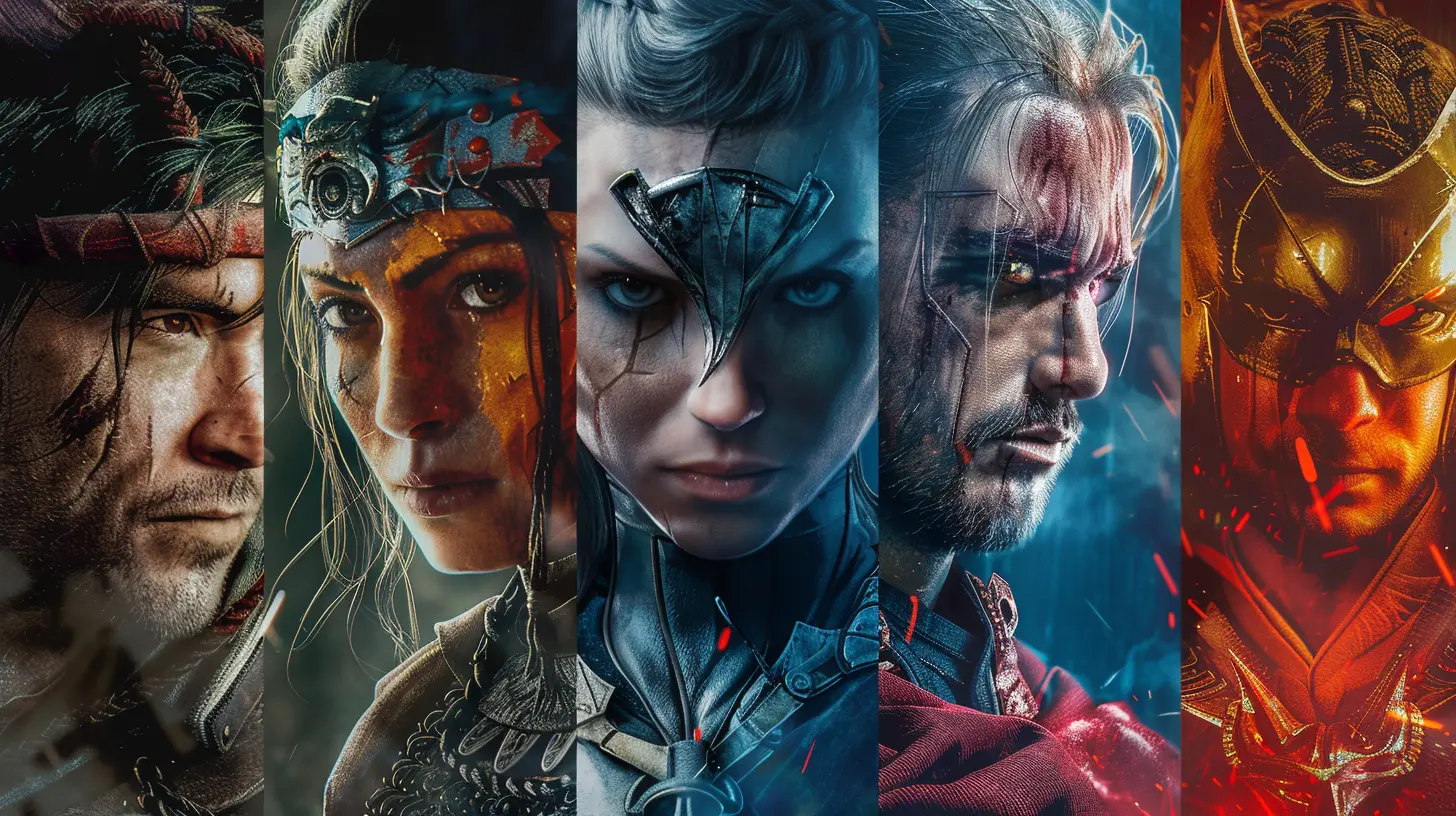
Villains With Layers: The Onion Effect
Not all villains are created equally. Some are simple caricatures of evil, there just to give the protagonist someone to punch in the face. But then, there are the villains with depth—those complex, multifaceted characters that leave us questioning if they’re actually the "bad guy" at all.Take Handsome Jack from Borderlands 2, for example. Sure, he’s egotistical, manipulative, and, well… a murderer. But he’s also hilarious, charismatic, and surprisingly vulnerable if you pay close attention. His tragic backstory and his warped sense of justice make him more than just a mustache-twirling villain. He’s an onion—you peel back his layers, and there’s always something more. Heroes, meanwhile, often feel like a loaf of white bread—fine, but not super interesting.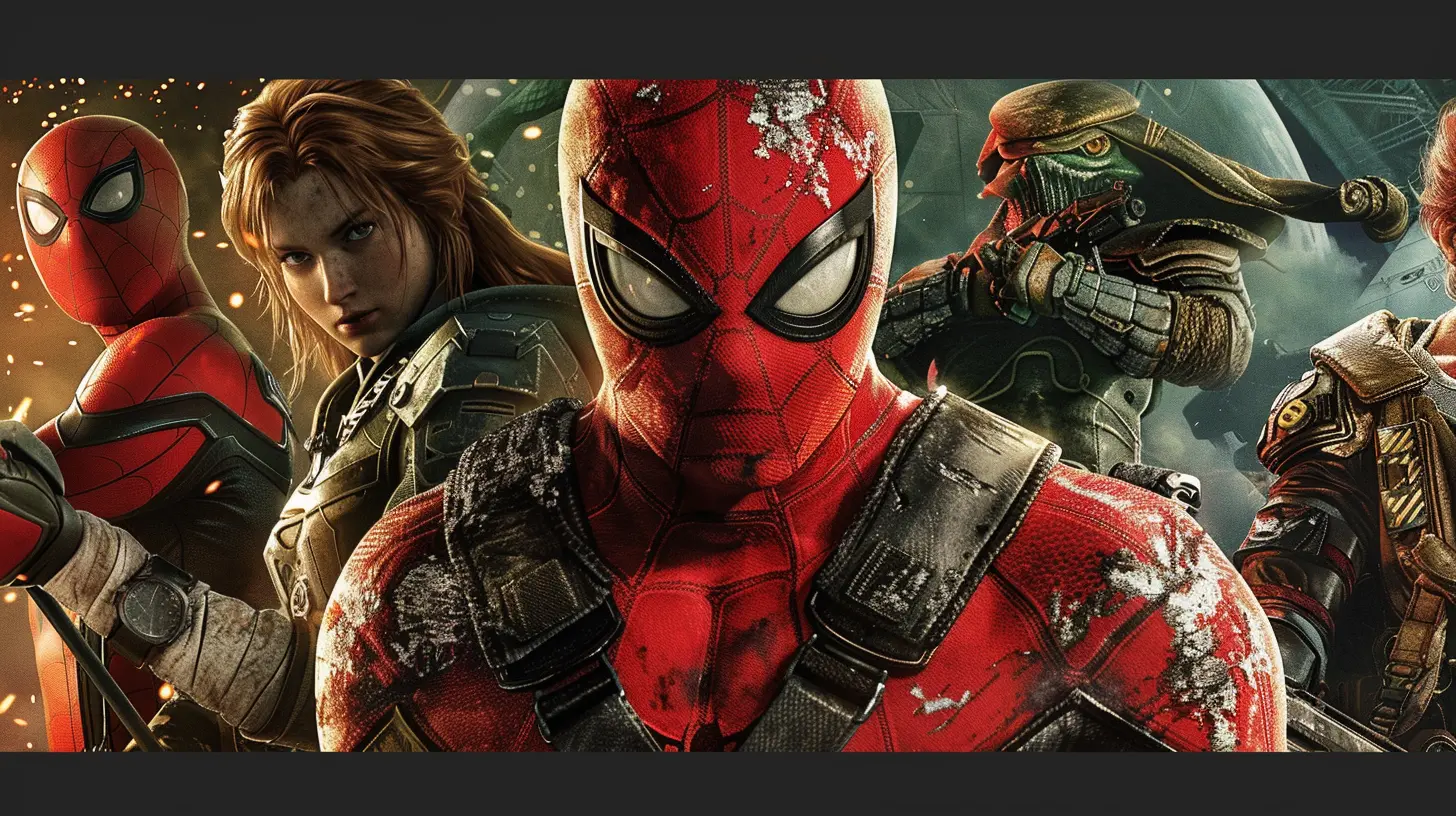
Charm That Outshines the Hero
Let’s face it: some villains are just cooler. Period.Think about Kefka Palazzo from Final Fantasy VI. His maniacal laugh, flamboyant personality, and chaotic energy turned him into an icon. Or Vaas Montenegro from Far Cry 3, whose unhinged monologues about insanity were so captivating that he basically overshadowed the rest of the game. Compare that to the often stoic, morally pure heroes. Who’s stealing the show here?
Heroes are like the friend who always reminds you to drink water and go to bed on time—important, sure, but not exactly exciting. Villains, on the other hand, are the wild-card friend who convinces you to stay out past midnight for a spontaneous road trip. It’s no contest.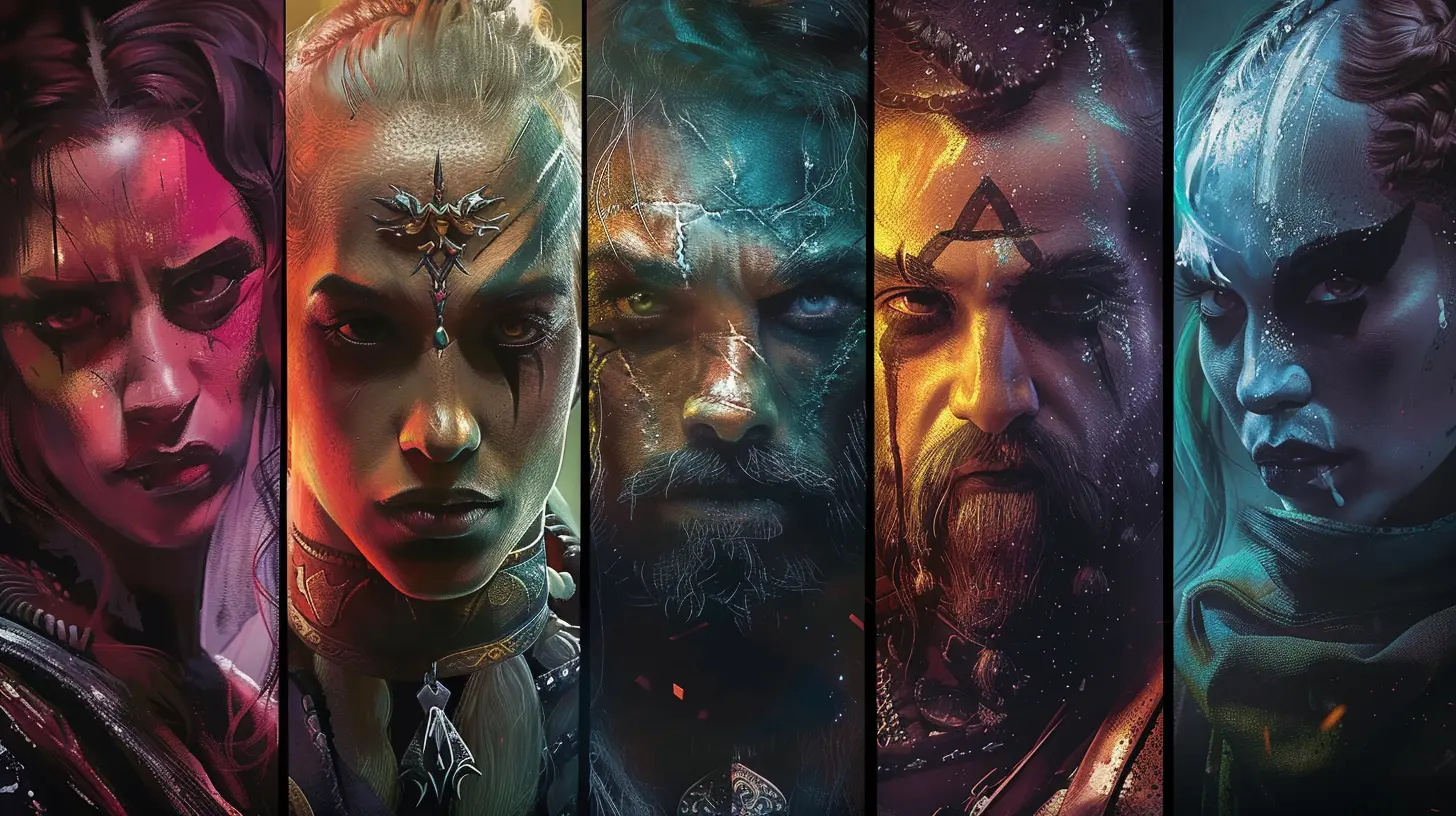
Relatable Motivation: More Than Just "Taking Over the World"
A lot of video game heroes follow the same cookie-cutter template—save the world, rescue someone, stop the bad guy. Villains, on the other hand, often have motivations that feel more grounded. Sometimes, their actions even make sense if you squint hard enough.Take Mr. Freeze from Batman: Arkham City. Is he a "villain"? Sure. But his goal—curing his wife’s terminal illness—is heartbreakingly relatable. His methods are questionable at best, but you can’t deny the guy’s got a good reason for breaking bad. Compare that to Batman, who’s running around brooding in a cape because of unresolved childhood trauma. See what I mean?
Great villains often have shades of gray in their motives, which makes them feel more human. They aren’t just evil for the sake of being evil—they’re trying to fix something, even if they’re going about it in the worst way possible. That complexity draws us in and makes us care about them, even when we know we probably shouldn’t.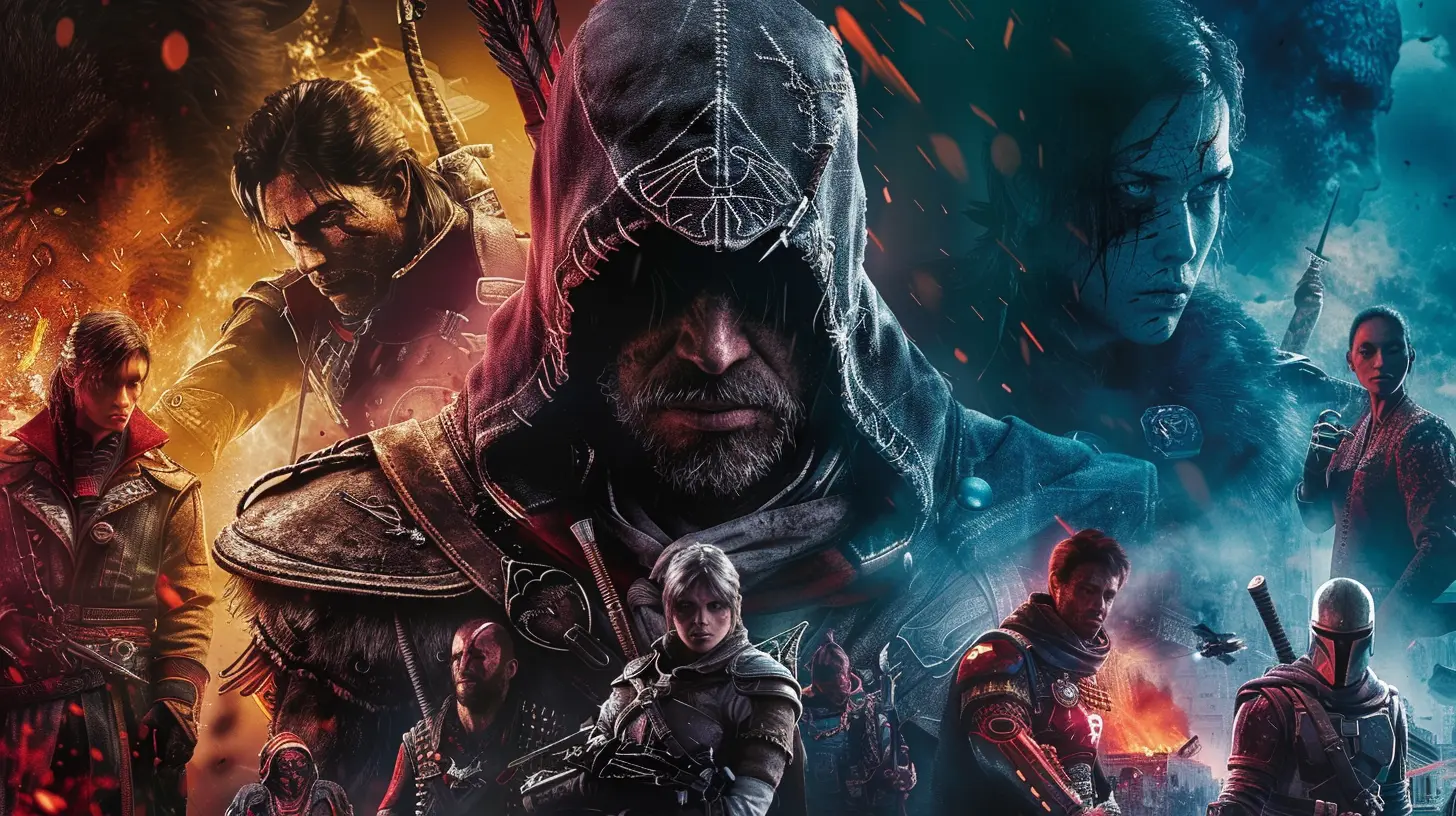
Heroes Can Be… Annoyingly Perfect
Video game heroes often suffer from a serious case of “too perfect.” They’re brave, selfless, strong, morally incorruptible—you know, everything we think we should aspire to, but honestly, who can relate to that?Villains, on the other hand, embrace their flaws. They get angry, they make bad decisions, and they’re unapologetically themselves. It’s oddly refreshing, isn’t it? Let’s not forget, flaws are what make characters (and people!) interesting.
Think about Glados from Portal. Technically, she’s a raging AI system with a penchant for attempted murder, but she’s also sarcastic, funny, and wickedly intelligent. She’d probably roast you into oblivion, but you’d leave laughing because her humor is just that good. Now imagine if she were the hero instead—where’s the fun in that?
The Villain’s Swagger: Style Points Matter
You ever notice how villains always get the cooler outfits, the dramatic theme music, and the grand entrances? Heroes might get a sword or some shiny armor, but villains get capes, masks, and epic one-liners that make them utterly unforgettable.Take Sephiroth from Final Fantasy VII. The man literally has his own theme song, "One-Winged Angel," which sends chills down your spine every time it plays. Heroes might save the day, but villains make it look good.
Even their lairs are cooler! Heroes might hang out in boring ol' castles or humble villages, while villains are lounging in volcano lairs, moon bases, or underwater fortresses. They’ve got flair, and that’s hard to resist.
They Reflect Our Inner Darkness
Let’s get a little deep for a second. Part of what makes villains so compelling is that they often reflect the darker parts of ourselves—the anger, jealousy, or insecurity we don’t like to talk about. Watching a villain struggle with those feelings resonates in a way that squeaky-clean heroes can't.Take The Joker in Batman: Arkham Knight. He represents chaos, despair, and the darker shades of human nature. And yet, there’s something undeniably captivating about him. It’s like looking in a funhouse mirror—you see something twisted, but it’s still vaguely familiar.
Villains remind us that it’s okay to not be perfect. They embrace their imperfections and wear their flaws like a badge of honor. It's something we all relate to, even if we’d rather not admit it.
The Antihero Effect
Sometimes, a villain isn’t really a villain at all—they’re an antihero. These are the characters who blur the lines between good and evil, standing squarely in that morally gray area. And man, are they fun to watch.Take Kratos from God of War (before his more recent dad-redeeming arc). Is he a hero? A villain? Both? He’s out there tearing through gods like it’s a buffet line, driven by vengeance and grief. While he’s technically the protagonist, his brutal methods and questionable morality make him feel more like an antihero. And we love him for it.
Antiheroes have the freedom to do what heroes can’t—they don’t have to play by the rules. That unpredictability adds an extra layer of excitement to their stories.
They’re Just Plain Fun
At the end of the day, the biggest reason we love video game villains is simple: they’re fun. They break the mold, they make us laugh (sometimes unintentionally), and they keep things interesting. Without them, most games would be a snooze-fest.Imagine a game without Bowser, Dr. Robotnik, or Ganondorf. Sure, Mario, Sonic, and Link are great, but without their iconic nemeses, would their adventures be nearly as memorable? Probably not.
Villains are the spice in the stew, the plot twist in the story, the fireworks in the finale. They’re what keep us coming back for more.
Conclusion: The Villainous Truth
So why are some video game villains more lovable than heroes? Maybe it’s their depth, their charm, or their relatability. Maybe it’s their unapologetic flaws or their undeniable style. Or maybe it’s just because they’re the ones who make the story worth playing.Whatever the reason, one thing’s for sure: villains aren’t just there to be defeated. They’re the heart of the narrative, the mirror to the hero, and the characters we secretly (or not-so-secretly) adore. So next time you’re playing your favorite game, take a moment to appreciate the bad guy—they’ve earned it.
all images in this post were generated using AI tools
Category:
Video Game CharactersAuthor:

Francesca West
Discussion
rate this article
9 comments
Selene Gomez
Because let’s face it, who doesn’t love a villain with more personality than the cardboard cutout hero?
April 3, 2025 at 2:34 PM

Francesca West
Absolutely! Villains often have complex backstories and motivations that make them relatable and intriguing, adding depth that can overshadow the more straightforward heroes.
Brick Moore
Great article! It’s fascinating how complex villains often steal the show with their charm and depth. They bring a unique perspective that makes us root for them, even when they’re up to no good. Can’t wait to see more!
April 1, 2025 at 4:19 PM

Francesca West
Thank you! I'm glad you enjoyed the article. Villains truly do add depth and intrigue to stories, making them memorable and complex!
Izaak Williams
Absolutely! Villains often possess depth, charisma, and relatable flaws, making them more intriguing than heroes. Their complexity adds richness to storytelling and keeps players engaged.
March 31, 2025 at 2:27 AM

Francesca West
Thank you for your insight! Villains' complexity certainly enhances storytelling and keeps players captivated.
Lana McFarlane
Villains often possess complexity and charisma, making them relatable and memorable compared to traditional heroes.
March 26, 2025 at 4:22 AM

Francesca West
Absolutely! Villains often have rich backstories and compelling motivations, which make them fascinating and relatable, adding depth to their characters that can outshine traditional heroes.
Abram Lopez
What an intriguing perspective! I appreciate how you highlight the complexity of video game villains, often embodying traits that make them relatable and even lovable. It’s fascinating to see how their depth can sometimes overshadow traditional heroism, bringing a refreshing dynamic to storytelling in games.
March 17, 2025 at 4:02 PM

Francesca West
Thank you! I'm glad you found the perspective intriguing. Villains can indeed add rich layers to storytelling, making them compelling and relatable in ways that challenge traditional hero narratives.
Tate McAleer
This article captures an intriguing aspect of gaming: villains often have depth and complexity that heroes lack. Their flaws and motivations make them relatable, prompting us to empathize with their darker choices. Great read!
March 17, 2025 at 5:49 AM

Francesca West
Thank you! I'm glad you enjoyed the article and found the exploration of villain complexity engaging. It’s fascinating how their flawed humanity can resonate with us.
Lennox McMurtry
Absolutely loved this article! It's fascinating how villains often steal the spotlight with their quirky charm and relatable flaws. Here’s to embracing the lovable baddies—sometimes they just need a hug, too! Great read!
March 16, 2025 at 4:00 AM

Francesca West
Thank you so much! I’m glad you enjoyed it. Villains really do add depth to stories, don’t they? Here’s to the lovable baddies!
Elena Adkins
In exploring the allure of lovable villains, we uncover a complex reflection of human nature. Their flawed motivations and relatable struggles often resonate more profoundly than conventional heroism. Perhaps it’s their raw authenticity that invites us to empathize, challenging our perceptions of morality and redemption in storytelling.
March 11, 2025 at 4:45 PM

Francesca West
Absolutely! Lovable villains reveal our own complexities and moral ambiguities, making them more relatable than traditional heroes. Their authenticity and struggles create a deeper connection with players, inviting us to rethink our definitions of good and evil.
Solstice Allen
This article insightfully explores the charm of video game villains, highlighting their complex motivations and relatable traits. Unlike typical heroes, these characters often embody flaws that resonate with players, making them memorable and lovable. It’s fascinating how storytelling can turn the antagonist into the most compelling figure in a game.
March 10, 2025 at 3:38 AM

Francesca West
Thank you for your thoughtful comment! I’m glad you found the exploration of villains’ complexities and relatability engaging. Their flaws truly do make them memorable characters in gaming.
MORE POSTS

Exploring the Magic Behind Super Smash Bros.

How to Beat Season Pass Fatigue in Today’s Gaming Landscape
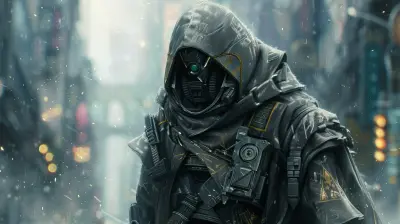
Not Just Pretty Faces: Most Intellectually Complex Game Characters
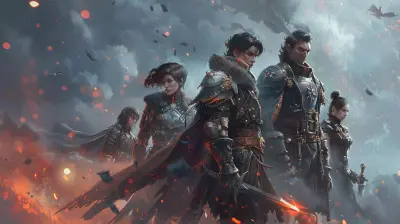
The Role of Synergy in Team-Based Character Builds
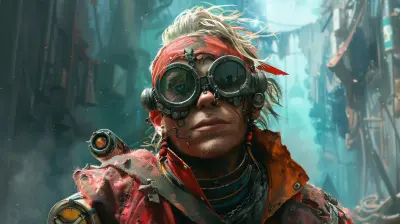
The Role of Animation in Game Character Personality

A Definitive Guide to Unlocking the Full Potential of Season Passes

Strategies to Win Big in Mobile Puzzle Games